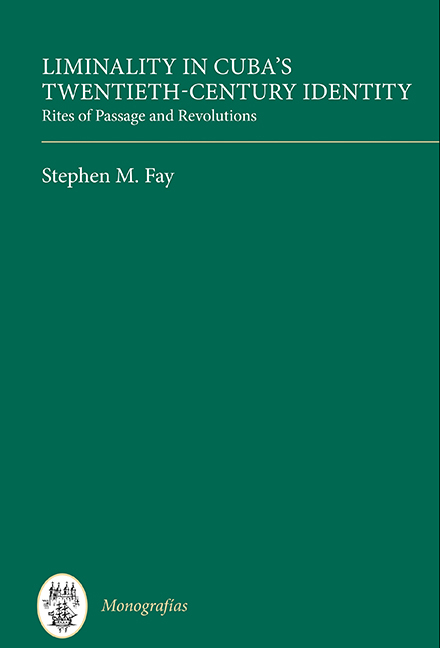Chapter 2 - 1927: Nihil admirari?
from PART I - 1923–1933
Published online by Cambridge University Press: 14 September 2019
Summary
As the 1920s progressed, Ortiz's suspicion of a teleological pursuit of integrated national identity seemed well founded. The venal President Zayas made way in 1925 for the soon-to-be much worse Machado and future victory for the embattled pueblo seemed as far away as ever. In 1927, a year often considered a mere ‘preamble, footnote or epilogue’ to the national narrative (Wright 1988: 109), the twenty-fifth anniversary of independence marked another turning point in in Cuba's twentieth-century trajectory and provoked renewed reflection on the Republic's past, present and future: ‘¿Qué hemos hecho en estos veinte y cinco años de cruento aprendizaje cívico?’, asked the editors of vanguard magazine revista de avance, which first appeared in March 1927 (1:4: 97). This chapter examines some of the answers offered by analyst-authors of Cuba's collective identity. It will show that the ‘liminalists’ once again faced the ‘reaggregationists’ over the pages of the national narrative, but will point to a significant discursive shift in this confrontation. From 1923's concentration on spatial, racial or cultural otherness, we will now see the debate displaced towards the notion of temporal alterity; in 1927 the Other comes not from elsewhere, but from ‘elsewhen’. This chapter examines the Cuban vanguard's assault on the old guard's aesthetic, ideological and discursive dominance on the island at a watershed moment, a moment Celina Manzoni describes as ‘la confluencia […] de una conciencia estética y de una conciencia social capaces de constituir una cultura nueva a partir de la ruptura de la tradición’ (2001: 21). This chapter will suggest, however, that this ‘ruptura’ was only half the collective story. We will see examine evidence of definite attempts to elucidate a ‘nihilistic’ collective sensibilidad wholly unencumbered by the past, but we will also uncover counter-narratives that point to psycho-cultural continuity across any schismatic divide.
Old guard vs vanguard
Although their endeavours in the Wars of Independence had transformed the veteranos into almost unimpeachable national heroes in 1898, the United States’ usurpation of the laurels of victory, the ratification of the despised Platt Amendment and the self-serving peacetime behaviour of some of the campaign's most senior commanders cast a gloomy pall over the heroic legacy of the independentista struggle.
- Type
- Chapter
- Information
- Liminality in Cuba's Twentieth-Century IdentityRites of Passage and Revolutions, pp. 53 - 74Publisher: Boydell & BrewerPrint publication year: 2019

